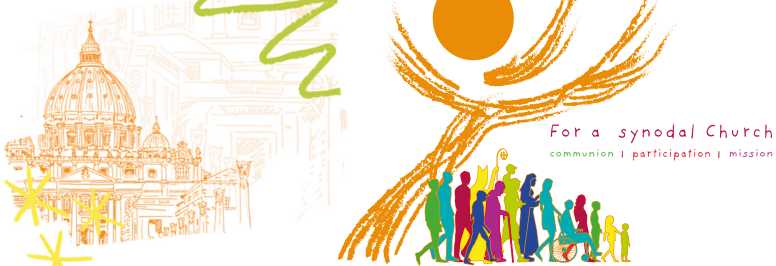By Deacon Richard Simpson
Pope Francis has left the Church an important tool for its future – a modern form of synodality as a core ecclesial practice. Synodality is not new, but Pope Francis expanded it from only involving bishops to include priests, deacons, religious and laity.
The effect of this was consistent with another core theme of Francis’s papacy – inclusion and giving voice to those who are marginalized. It has been lived out in our diocese through many listening sessions and dialogues meant to foster a greater sense of communion, participation and mission in our local Church.
Among the important principles of the Roman Catholic Church are subsidiarity and synodality. Since the Second Vatican Council these two principles have become especially important as the Church recognizes the importance of all of its members.
To understand one of these principles requires understanding the other as well. Subsidiarity is proper delegation, allowing those closest to the issues to have the responsibility and the authority to resolve them without referring to a higher authority in the Church. This delegation involves individual bishops, parochial pastors, diocesan leaders, etc.
In this diocese, in the spirit of subsidiarity, the diocesan Office of Pastoral Planning for years has assisted parish pastors in developing their own plans with their pastoral councils and parishioners in a synodal manner.
To the extent true subsidiarity exists, a broader synodality is necessary to obtain the perspectives of those who are active in their local churches. Pope Francis realized this and called for inputs from parishes, dioceses, and regions of the world over a period of three years. In this way, Pope Francis could more fully obtain from the People of God the sensus fidei (sense of the faith) discussed in the Catechism (92) as well as practical changes to managing the Church.
Synodality is not a democratic process in the way Americans understand democracy. It is a common practice in management to formulate sound strategies involving representatives of all levels of the organization participating in discussions. Every level has its view, and all are enabled in the process to understand better other views from within the organization. After discussions, information is given, and sometimes recommendations are made, to the decisionmaker (Pope Francis) for his consideration.
Many expected big decisions by Pope Francis from the Synod of Bishops for the Pan-Amazon Region as well as from the recent global Synod on Synodality. While results of synods may be direct decisions, more often they will lead to further discussion and study.
The final report of the Synod on Synodality, approved and published by Pope Francis, called for making synodality a core Church practice, expanding the roles of women, engagement with marginalized communities, evangelization, and structural and procedural reforms. These will bring the Church into the modern world. Pope Francis called for their implementation across the global Church.
Deacon Richard Simpson is assigned to the Office of the Bishop and is a Professor Emeritus of Strategic Management at the University of La Verne.


